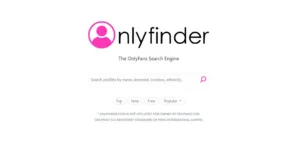Exploring AI Software Development Kits for Businesses

Introduction
In today’s rapidly evolving digital landscape, businesses are increasingly turning to artificial intelligence (AI) to drive innovation, enhance productivity, and gain a competitive edge. AI software development kits (SDKs) have emerged as indispensable tools that empower businesses to integrate AI capabilities into their applications and solutions. In this article, we will delve into the world of AI software development kits and explore their potential to revolutionize the way businesses operate.
Understanding AI Software Development Kit
AI software development kits are comprehensive packages that provide developers with the necessary tools, libraries, and frameworks to build AI-powered applications. These SDKs offer a range of pre-built AI models, algorithms, and APIs that enable businesses to leverage cutting-edge technologies like natural language processing, computer vision, and machine learning.
Benefits of AI Software Development Kit for Businesses :
Accelerated Development – AI SDKs streamline the development process by offering ready-to-use AI components, saving valuable time and resources.
Access to Advanced Algorithms – These kits provide access to state-of-the-art algorithms, empowering businesses to develop sophisticated AI models without the need for extensive expertise in AI research.
Integration Flexibility – AI SDKs are designed to seamlessly integrate with existing software infrastructure, allowing businesses to enhance their applications with AI capabilities without disrupting their workflow.
Customization Options – Businesses can tailor AI models and algorithms provided by SDKs to suit their specific needs, ensuring optimal performance and relevance for their applications.
Continuous Updates and Support – Reputable AI SDKs are frequently updated, ensuring access to the latest advancements in AI technology, bug fixes, and ongoing technical support.
Popular AI Software Development Kits for Businesses
Table of Contents
TensorFlow
TensorFlow – Developed by Google, TensorFlow is an open-source AI software development kit (SDK) that has gained immense popularity in the field of machine learning and deep learning.
With its flexible architecture and extensive set of tools and libraries, TensorFlow empowers businesses to build and deploy scalable and efficient AI models across various platforms.
Key Features of TensorFlow:
- High-Level APIs – TensorFlow provides high-level APIs that simplify the process of building and training machine learning models. These APIs, such as Keras, offer a user-friendly interface and allow developers to quickly prototype and implement AI solutions.
- Distributed Computing – TensorFlow enables distributed computing, allowing businesses to leverage multiple processors and GPUs to train large-scale models efficiently. This capability is particularly beneficial for training complex deep learning models.
- TensorFlow Serving – The SDK includes TensorFlow Serving, a dedicated system for serving trained models in production environments. This component enables businesses to deploy AI models as scalable, production-ready services.
- TensorFlow Lite – TensorFlow Lite is a lightweight version of the SDK specifically designed for mobile and edge devices. It allows businesses to run AI models on resource-constrained devices, expanding the reach and applications of AI technology.
- TensorFlow Extended (TFX) – TFX is a production-ready platform provided by TensorFlow for end-to-end machine learning workflows. It supports data validation, preprocessing, model training, model evaluation, and serving, providing a comprehensive solution for building scalable AI systems.
Benefits of TensorFlow for Businesses:
- Wide Range of Applications – TensorFlow is versatile and can be applied to various domains, including image recognition, natural language processing, speech recognition, recommendation systems, and more.
- Large and Active Community – TensorFlow boasts a large and active community of developers, researchers, and enthusiasts who contribute to its continuous improvement and provide valuable support and resources.
- Compatibility and Integration – TensorFlow is compatible with different programming languages and frameworks, allowing businesses to integrate it into their existing software ecosystem seamlessly.
- Model Deployment Flexibility – With TensorFlow Serving and TensorFlow Lite, businesses can deploy their trained models across different environments, including cloud, mobile, and edge devices.
- Scalability and Performance – TensorFlow’s distributed computing capabilities enable businesses to scale their AI applications efficiently and achieve high performance even with large datasets and complex models.
PyTorch
PyTorch – It’s a popular open-source AI software development kit (SDK) primarily used for deep learning. Developed by Facebook’s AI research team. PyTorch provides a flexible and dynamic framework for building and training neural networks. It has gained significant traction among researchers and developers due to its simplicity, extensive library support, and intuitive interface.
Key Features of PyTorch:
- Dynamic Computation Graph – PyTorch utilizes a dynamic computation graph, which allows for easier debugging and efficient experimentation. It enables developers to define and modify computational graphs on the go, offering flexibility and ease of use.
- GPU Acceleration – PyTorch seamlessly integrates with graphics processing units (GPUs) for accelerated training and inference. This feature significantly boosts the performance of deep learning models, allowing for faster and more efficient computations.
- TorchScript – PyTorch provides TorchScript, a just-in-time (JIT) compiler that allows developers to convert PyTorch models into a serialized representation. This enables efficient deployment of models across various platforms and languages.
- Extensive Library Support – PyTorch benefits from an extensive library ecosystem, including popular libraries like torchvision and torchtext. These libraries offer pre-built modules, datasets, and utilities that simplify common deep learning tasks such as image classification, natural language processing, and more.
- Seamless Integration – PyTorch can seamlessly integrate with popular Python libraries and frameworks, making it easy to combine with other tools and technologies for data processing, visualization, and deployment.
Benefits of PyTorch for Businesses:
- Intuitive and Pythonic Syntax – PyTorch’s Pythonic syntax makes it user-friendly and easy to learn. Its simple and expressive API allows developers to focus more on the model architecture and experimentation rather than the technicalities of the framework.
- Strong Research Community – PyTorch has a vibrant research community that actively contributes to the development of state-of-the-art techniques and models. This community support fosters innovation and keeps PyTorch at the forefront of advancements in deep learning.
- Dynamic Neural Networks – The dynamic computation graph in PyTorch enables dynamic adjustments to the model architecture during runtime, facilitating techniques like recurrent neural networks and attention mechanisms that require dynamic behavior.
- Seamless Transition from Prototyping to Production – PyTorch’s modular design and TorchScript compilation facilitate the seamless transition of models from research prototyping to production deployment. This allows businesses to leverage the same codebase and iterate quickly.
- Strong Industry Adoption – PyTorch has gained significant industry adoption, with many companies and research labs utilizing it for building and deploying advanced AI solutions. This widespread usage ensures ongoing development, support, and stability of the framework.
Microsoft Cognitive Toolkit (CNTK)
Microsoft Cognitive Toolkit (CNTK) – It is also known as CNTK, is an open-source deep learning framework developed by Microsoft Research. It provides a powerful and efficient platform for training and deploying deep neural networks, making it suitable for various AI applications.
CNTK is designed to scale efficiently across multiple GPUs and servers, enabling businesses to leverage distributed computing resources for large-scale training.
Key Features of Microsoft Cognitive Toolkit (CNTK):
- Efficient Performance – CNTK is known for its high computational efficiency, allowing businesses to train deep learning models faster and more efficiently. It utilizes optimized algorithms and supports distributed training, making it suitable for handling large datasets and complex models.
- Scalability – CNTK is designed to scale across multiple GPUs and servers, enabling businesses to leverage distributed computing resources. This scalability makes it ideal for training models that require significant computational power.
- Flexible Architecture – CNTK offers a flexible and extensible architecture that allows developers to build custom neural network models. It supports a wide range of network types, including feedforward networks, convolutional neural networks (CNNs), recurrent neural networks (RNNs), and more.
- Integration with Microsoft Ecosystem – CNTK seamlessly integrates with other Microsoft products and services, such as Azure Machine Learning and Azure Data Science Virtual Machines. This integration enables businesses to leverage the broader Microsoft ecosystem for end-to-end AI solutions.
- Programming Language Support – CNTK supports multiple programming languages, including Python, C++, and C#. This language flexibility allows developers to choose the language that best suits their needs and expertise.
- Pre-Trained Models – CNTK provides access to pre-trained models that can be used for various AI tasks, such as image classification, object detection, and speech recognition. These pre-trained models serve as a starting point for businesses, saving time and resources in model development.
Benefits of Microsoft Cognitive Toolkit (CNTK) for Businesses:
- High Performance – CNTK’s efficient algorithms and distributed training capabilities enable businesses to train and deploy deep learning models faster, improving productivity and time-to-market.
- Scalability for Large-Scale Projects – With its ability to scale across multiple GPUs and servers, CNTK is well-suited for tackling large-scale AI projects that involve big data and complex models.
- Integration with Microsoft Services – CNTK’s integration with Azure Machine Learning and other Microsoft services provides businesses with a comprehensive AI ecosystem for data processing, model training, and deployment.
- Extensive Community Support – CNTK benefits from an active community of developers and researchers, ensuring ongoing development, support, and access to resources, including pre-trained models and code samples.
- Versatility in Model Architectures – The flexibility of CNTK allows businesses to experiment with various network architectures, enabling them to create custom models tailored to their specific needs.
- Cost-Effective Solution – As an open-source framework, CNTK eliminates the need for expensive licensing fees, making it a cost-effective choice for businesses of all sizes.
IBM Watson Developer Cloud
IBM Watson Developer Cloud – IBM Watson Developer Cloud is a comprehensive and powerful platform that provides developers with access to a wide range of artificial intelligence (AI) and cognitive computing services.
Built on IBM’s Watson technology, this cloud-based platform offers various APIs and tools to help businesses incorporate AI capabilities into their applications and services.
Key Features of IBM Watson Developer Cloud:
- Natural Language Processing (NLP) – The platform includes NLP services that enable businesses to extract insights from unstructured text data. Developers can leverage APIs like Language Translator, Tone Analyzer, and Natural Language Understanding to analyze and interpret textual information.
- Visual Recognition – IBM Watson Developer Cloud offers computer vision capabilities through the Visual Recognition service. This service allows businesses to build applications that can analyze and understand images and videos, enabling tasks such as image classification, object detection, and facial recognition.
- Speech-to-Text and Text-to-Speech – The platform provides services for converting spoken language into written text (Speech-to-Text) and written text into spoken words (Text-to-Speech). This functionality can be used to develop applications that transcribe audio recordings, enable voice commands, or generate synthesized speech.
- Machine Learning and Predictive Analytics – IBM Watson Developer Cloud offers machine learning services that facilitate the development of predictive models. Developers can utilize services like Watson Machine Learning and Watson Studio to build, train, and deploy machine learning models to make data-driven predictions and insights.
- Chatbot Development – The platform includes services for creating conversational agents or chatbots. Developers can leverage tools like Watson Assistant to build interactive chatbots that can understand and respond to user queries, enhancing customer engagement and support experiences.
- Natural Language Understanding and Translation – IBM Watson Developer Cloud offers services for understanding and translating natural language. These services enable businesses to analyze and interpret text in multiple languages, facilitating global communication and information processing.
- Integration and Deployment – The platform provides a range of integration options, allowing developers to seamlessly incorporate IBM Watson services into their existing applications, websites, or software solutions. IBM also offers deployment options for on-premises or cloud environments, providing flexibility and scalability to businesses.
Benefits of IBM Watson Developer Cloud for Businesses:
- Cutting-Edge AI Capabilities – The platform leverages IBM Watson’s advanced AI technologies, empowering businesses to enhance their applications with state-of-the-art cognitive computing capabilities.
- Broad Range of Services – With a diverse set of AI services available, businesses can address various use cases and leverage different types of data, such as text, images, and speech.
- Developer-Friendly Environment – IBM Watson Developer Cloud provides developers with user-friendly APIs, documentation, and development tools, making it easier to integrate AI capabilities into their applications.
- Scalability and Performance – The platform is designed to handle large-scale workloads, allowing businesses to process vast amounts of data and serve a growing number of users without compromising performance.
- Security and Compliance – IBM Watson Developer Cloud prioritizes data security and compliance, providing businesses with peace of mind when it comes to handling sensitive information and adhering to regulatory requirements.
- Continuous Innovation – IBM Watson is known for its commitment to research and development, ensuring that businesses have access to cutting-edge AI technologies and advancements.
Google Cloud AI Platform
Google Cloud AI Platform – Google Cloud AI Platform is a comprehensive suite of tools and services provided by Google that enables businesses to develop, deploy, and scale artificial intelligence (AI) models and applications.
It offers a wide range of capabilities, including machine learning, deep learning, data preprocessing, model training, and model deployment.
Key Features of Google Cloud AI Platform:
- Data Preparation and Transformation – The platform provides tools for data preprocessing, transformation, and feature engineering. Developers can leverage services like Google BigQuery, Cloud Dataflow, and DataPrep to efficiently clean, process, and prepare data for model training.
- Machine Learning and Deep Learning – Google Cloud AI Platform supports popular machine learning frameworks like TensorFlow and scikit-learn, as well as deep learning frameworks like TensorFlow Extended (TFX) and Keras. It offers distributed training capabilities, allowing developers to train models on large-scale datasets efficiently.
- AutoML – Google Cloud AI Platform includes AutoML, a set of automated machine learning tools that enable developers with limited expertise in machine learning to build high-quality models. AutoML provides features like AutoML Vision, AutoML Natural Language, and AutoML Tables, which automate the process of training and deploying models for specific tasks.
- Model Deployment and Serving – Once models are trained, Google Cloud AI Platform allows easy deployment and serving of models through its hosted prediction service. Models can be deployed as RESTful APIs, enabling real-time inference and integration with other applications and services.
- Scalability and Performance – The platform is built on Google Cloud infrastructure, offering scalability and high-performance computing capabilities. It can handle large-scale datasets and accommodate high-demand applications, ensuring efficient processing and response times.
- Integration with Google Cloud Services – Google Cloud AI Platform seamlessly integrates with other Google Cloud services, such as Google Cloud Storage, BigQuery, and Cloud Functions. This integration enables easy access to data, facilitates data movement, and enables the building of end-to-end AI pipelines.
- Model Monitoring and Management – The platform provides monitoring and management capabilities for deployed models. Developers can track model performance, monitor usage, and perform versioning and rollback of models, ensuring efficient management throughout the model lifecycle.
- Collaboration and Experimentation – Google Cloud AI Platform supports collaborative workflows, allowing multiple developers and data scientists to work together on projects. It provides version control, notebook integration, and experiment tracking, facilitating collaboration and experimentation.
- AI Marketplace – Google Cloud AI Platform offers an AI Marketplace where developers can discover and deploy pre-trained models, accelerators, and other AI assets from a wide range of providers. This allows businesses to leverage existing AI capabilities and accelerate their own development process.
Benefits of Google Cloud AI Platform for Businesses:
- Powerful and Scalable Infrastructure – Google Cloud AI Platform leverages Google’s robust infrastructure, enabling businesses to process large datasets and scale AI workloads efficiently.
- Wide Range of AI Services – The platform provides a comprehensive suite of AI tools and services, covering various aspects of machine learning, deep learning, and model deployment.
- Integration with Google Cloud Ecosystem – Google Cloud AI Platform seamlessly integrates with other Google Cloud services, offering a unified environment for data storage, processing, and AI development.
- Automated Machine Learning – The AutoML capabilities in Google Cloud AI Platform make it accessible to users with limited machine learning expertise, allowing them to build high-quality models without extensive manual coding.
- Collaboration and Experimentation – The platform facilitates collaborative workflows, making it easy for teams to work together and experiment with different approaches and models.
- Trusted and Secure – Google Cloud maintains high standards of security and compliance, ensuring that businesses can trust their data and models on the platform.
Best Practices for Utilizing AI SDKs
Clearly Define Objectives – Before integrating AI SDKs, businesses should define their goals and objectives to ensure the selected SDK aligns with their specific requirements.
Test and Iterate – Conduct thorough testing and iterate on AI models to fine-tune their performance and optimize results.
Stay Updated – Keep up with the latest advancements in AI technology and updates released by the SDK developers to benefit from new features, improvements, and security patches.
Conclusion:
AI software development kits have revolutionized the way businesses approach AI integration, enabling them to harness the power of AI without extensive expertise in AI research. By leveraging AI SDKs, businesses can unlock new possibilities, enhance their applications with intelligent capabilities, and stay at the forefront of innovation in today’s digital landscape.




